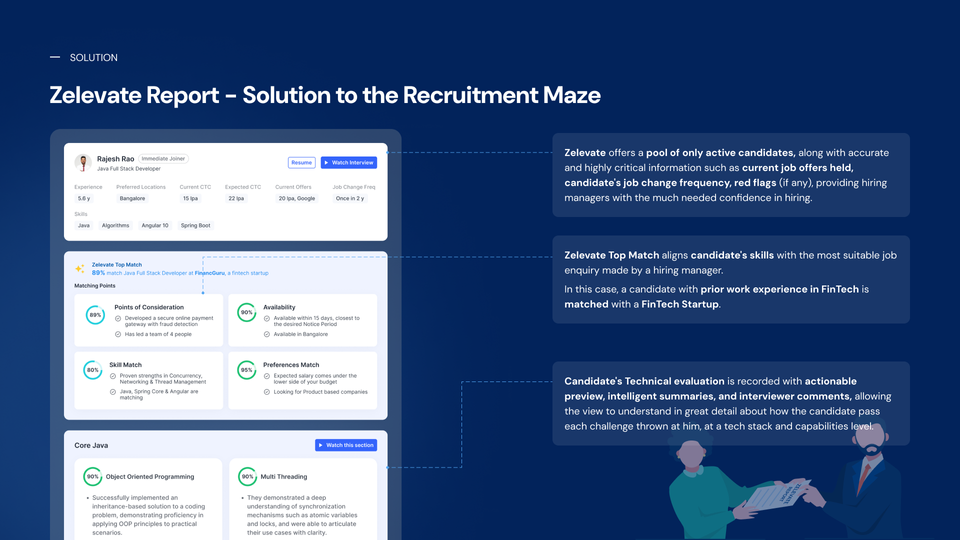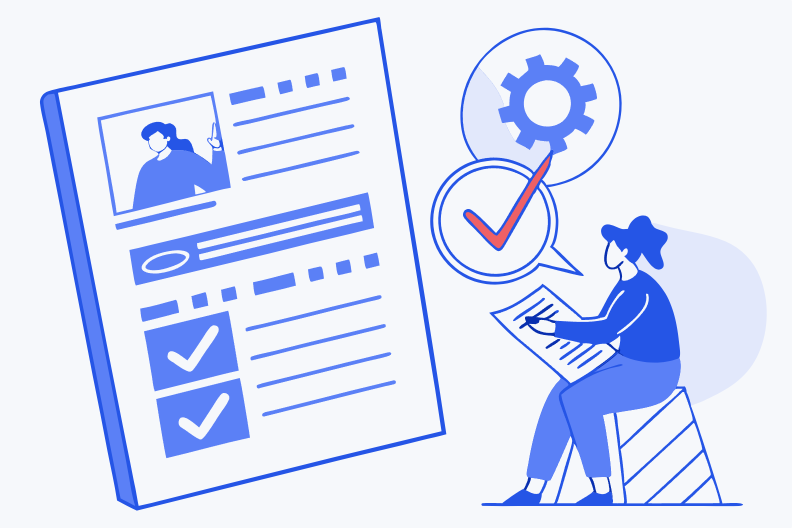Bottlenecks of Unverified Skills: Why Tech Hiring Needs a Drastic Change

In the heart of Silicon Valley, a startup CTO once shared a story that's all too familiar in the tech industry. After spending three months and $35,000 spent on hiring a supposedly experienced full-stack developer, they discovered during the first sprint that the new hire couldn't implement basic React components without constant supervision. The candidate's impressive resume and confident interview responses had painted a picture that didn't match reality – a costly mistake that would impact team productivity for months to come.
This scenario isn't an isolated incident. In today's rapidly evolving tech landscape, the gap between claimed and actual technical capabilities has become a critical challenge for hiring managers and recruiters alike.

The Growing Crisis in Tech Talent Validation
The tech hiring landscape is also braving a storm of challenges. With the global developer population expected to reach 28.7 million by 2024, hiring managers are drowning in a sea of resumes. Yet, paradoxically, finding the right talent has never been more difficult. Here's why:
The Resume Paradox
Traditional resumes have become increasingly unreliable indicators of actual technical capabilities. In an industry where skills matter more than credentials, the traditional hiring process becomes fundamentally flawed. Companies often find themselves in a position where they must invest significant resources in validating skills that should have been verified during the hiring process.

The Cost of Misalignment
The financial impact of a bad hire extends far beyond the immediate recruitment costs. When a new hire's skills don't align with their claimed expertise, it creates a ripple effect:
- Lost productivity across teams
- Additional training and supervision requirements
- Delayed project timelines
- Decreased team morale
- Potential client dissatisfaction
Studies suggest that a bad hire can cost organizations up to 30% of the employee's first-year earnings, with tech positions often reaching even higher percentages due to their critical nature in project delivery.
The solution lies in moving beyond traditional hiring methods toward a more structured, objective-driven approach to skill validation.
Here's what this means in practice:
Standardization is Key
Just as we wouldn't trust a doctor without board certification or a lawyer without passing the bar, tech hiring needs standardized evaluation metrics. This isn't about creating more barriers to entry – it's about ensuring clarity and fairness in the hiring process.
Real-World Technical Assessment
Theory and practice often diverge significantly in software development. Effective skill validation must include:
- Practical coding challenges that mirror real-world scenarios
- Comprehensive technical interviews conducted by industry experts
- Evaluation of problem-solving approaches, not just final solutions
- Assessment of collaboration and communication skills in technical contexts
Measuring Employability: The Zelevate Approach
Leading the charge in this transformative effort is Zelevate's RecruitAssist platform, which has changed the modus operandi of the tech hiring process with a comprehensive skill validation framework.
The Platform's approach demonstrates how modern hiring solutions can effectively address traditional pain points:
Comprehensive Technical Evaluation
Instead of relying on surface-level resume screening, each candidate undergoes a rigorous 90-minute one-on-one technical interview conducted by industry experts. These interviews cover 14 distinct tech stacks, from frontend technologies like React.js and Angular to sophisticated AI/ML frameworks and DevOps tools. The standardized interview rubrics ensure consistent evaluation across all candidates. The interviews themselves are carried out by neutral, domain experts and veterans who have excelled in the same tech stack; Each interview scheduled is assigned to a domain expert who possesses equivalent experience in the Tech stack being evaluated while interviewing any candidate.

Data-Driven Decision Making
Next, the Zelevate Candidate Talent Report provides detailed evaluation of both technical and soft skills, supported by recorded interviews and fitment insights. This comprehensive approach has yielded impressive results, with 40% of submitted candidates receiving offers from client companies – a testament to the effectiveness of thorough skill validation.
End-to-End Recruitment Support
The platform eliminates common hiring inefficiencies by handling everything from initial sourcing to interview coordination, ensuring that hiring managers can focus on evaluating the best-fit candidates rather than managing logistics.
What Awaits Around the Corner
The industry is gradually moving toward more sophisticated hiring approaches that emphasize validated skills over claimed expertise. Modern solutions are emerging that combine:
- AI-driven matching algorithms to ensure job-skill alignment
- Standardized technical interviews conducted by subject matter experts
- Comprehensive skill evaluation reports that provide actionable insights
- Recorded evaluations that allow for objective review and comparison
These innovations are transforming tech hiring from an art of guess-work into a science of validation. Companies implementing these approaches report significantly higher success rates in their tech hires, with many seeing up to 40% of submitted candidates receiving offers – a dramatic improvement over traditional hiring methods.
The Imminent Change
The tech industry can no longer afford the luxury of hope-based hiring. As technology stacks become more complex and specialized, the need for efficient, objective-driven skill validation becomes increasingly critical. Organizations must embrace modern solutions that:
- Reduce time-to-hire without compromising on quality
- Provide objective, standardized evaluation metrics
- Offer detailed insights into candidate capabilities
- Support informed decision-making in the hiring process
The future of tech hiring lies not in more rigorous questioning or longer interview processes, but in smarter, more efficient validation methods that benefit both employers and candidates. By implementing structured skill validation processes, companies can significantly reduce hiring risks while building stronger, more capable technical teams.
In an industry where talent is everything, we can't afford to guess – we need to know. Platforms like Zelevate's RecruitAssist are leading this transformation, proving that with the right approach, efficient and accurate skill validation is not just possible – it's the new standard in tech hiring.
